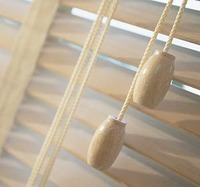Products Liability
Massachusetts Escalator Accident Follows Years of State’s Failure to Inspect
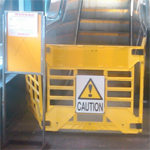 A recent public records request made by the Boston Globe shows the state has failed to regularly inspect approximately 75 percent of the escalators in Massachusetts malls.
A recent public records request made by the Boston Globe shows the state has failed to regularly inspect approximately 75 percent of the escalators in Massachusetts malls.
From 2008 to 2010, only 44 of the state’s 188 mall escalators received annual inspections as required by law. Inspectors missed one or two inspections during those three years on 144 escalators.
When mall escalators were inspected, they needed repairs in more than half the cases. Mall escalators were shut down 22 times.
The newspaper made the public records request following the wrongful death of 4-year-old Mark DiBona last month in an escalator accident in a Sears department store at the Auburn Mall near Worcester. The child fell through a 6-inch-wide gap between the handrail and the glass barrier.
The state Department of Public Safety suspended the two inspectors who approved the defective escalator for use.
The state’s failure to inspect its escalators dates back at least 15 years. In 1995, the Globe reported that nearly 40 percent of the state’s escalators and elevators had expired inspections.
The state currently has 34,000 elevators and 900 escalators for 51 inspectors to examine. Two dozen of those positions were created in 2010, the same year an audit found that nearly a third of the state’s elevators and escalators had expired inspections. Fifty one inspectors is the most the state has had in years, though some specialists say they still carry a heavy workload.
Beyond staffing, some specialists in the field say that inspectors spend more time on elevators and are less experienced with escalators, which may contribute to escalator accidents in Massachusetts.
Boston personal injury lawyer David White on the findings: “It is encouraging that the state is now catching up on the backlog of inspections. What is discouraging, however, is how many violations they are finding. This is a strong indication that property owners and their own service companies may be putting the public at severe risk.”
To read the Boston Globe article reporting this data, click here.
Read More
Window Blind Design Reconsidered After Numerous Infant Deaths
The Consumer Product Safety Commission (CPSC) has asked manufacturers to re-design window blinds so as to eliminate the risk of infant wrongful death from strangulation.
Window blind manufacturers have known about the problem for decades, starting with a federal study in the 1980s that tied 41 child strangulation deaths to drapery and blind cords. Since then, manufacturers have dragged their feet when it comes to improving safety.
And infants are still dying. The NY Times reports that in August 2009, Kathleen Leeson put her 2-year-old son down for a nap. A short time later, Ms. Leeson discovered her son hanging, lifeless, an inch off the floor with the window blind cord wrapped around his neck. Further, in 2002 1-year-old Cheyenne Kaiser was found by her mother strangled sitting up in her crib, which was next to the window, with the inner window blind cord wrapped around her neck.
The CPSC has released a safety alert for concerned parents explaining the risk of personal injury and wrongful death to children from the various types of window blind cords. In its safety alert, the CPSC makes four recommendations to help prevent these tragic strangulation injuries:
- Use only cordless window blinds in all homes where children live or visit;
- Do not place cribs, beds, or furniture close to windows where children can climb and gain access to the cords;
- Make all loose cords inaccessible; and
- In windows with looped bead chains or nylon cords, use tension devices to keep the cord taut.
Moreover, in response to the industry’s unenthusiastic attempts at improving product safety, a task force of regulators, consumer advocates, and industry leaders have come together to find a solution by the fall of 2011.
The CPSC has also warned the window blind industry that, if it cannot reach a solution soon to minimize these life-threatening dangers, it may face mandatory safety regulations.
Warning to Massachusetts Residents: Tea Light Candles Recalled Due to Holder Burn/Melt Risk
Over 7 million candles have been recalled due to concerns that the cup holding the candles could melt or catch fire.
The Consumer Product Safety Commission has stated that the defective products, tea light type candles, were sold under the brand names Chesapeake Bay Candle and Modern Light.
The affected candles were sold in Massachusetts and nationwide at retailers such as Home Goods, Target, and Wegmans between July 2009 and February 2011.
The clear plastic cup holding the candles is at risk for melting or igniting during use. There has been one consumer report of the candle’s plastic cup melting during use.
Salmonella Outbreak in Rhode Island Now Linked to Death
A salmonella outbreak in Rhode Island now includes at least twenty-one people with severe illness, and one death, according to reports from public health officials in that state. Health officials are investigating another eighteen illnesses to see if they are tied to the salmonella outbreak.
Officials are focused on zeppole and other pastries which were made by Defusco’s bakery in Johnston, Rhode Island. According to news reports, investigators found pastry shells stored in boxes contaminated with raw eggs, and also found that custard used as filling was not being properly chilled.
Investigators have identified the particular strain of salmonella, known as Salmonella heidelberg, as the suspected organism responsible for the illnesses. They are now trying to determine whether the death of the elderly Rhode Island resident was caused by that particular strain.
The investigation into the food poisoning outbreak began on March 25, 2011, after nearly a dozen elderly residents of a Warwick nursing home became sick after eating pastries from Defusco’s bakery. Since March 12, two dozen victims have required hospitalization for severe illness.
Salmonellosis, the disease caused by salmonella infection or salmonella toxins, leads to diarrhea, fever, vomiting and abdominal cramps. Most people recover without treatment, but in the elderly, in infants, or people with compromised immune systems, the disease can be very severe, requiring hospital admission for rehydration and antibiotic treatment to prevent the spread of infection. Severe infections can lead to reactive arthritis and death.
Prevention of salmonella illnesses is straightforward. Food which may contain the bacteria, such as chicken or pork, must be prepared properly to kill the organism and destroy any salmonella toxin. Eggs and milk, and their products, must be properly prepared, handled, and refrigerated. Infections can also occur from contact with reptiles, pet rodents, and tainted fruits and vegetables. Proper hygiene–washing hands before and after handling food–is also a common sense method of reducing the likelihood of food poisoning.
Each year over 140,000 people suffer from salmonella poisoning in the U.S. and dozens die from the illness.
Lasko Recalls Box Fans Due To Fire Hazard
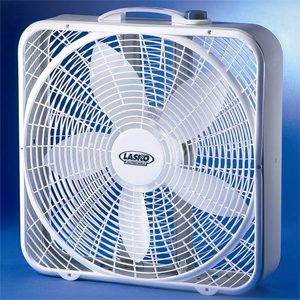 Lasko Products, Inc. has recalled 4.8 million box fans in Massachusetts and across the country after receiving seven reports of fires associated with motor failures, including two house fires and one barn fire. According to the Consumer Product Safety Commission, the Lasko fans pose a hazard due to an electrical failure in the fan’s motor.
Lasko Products, Inc. has recalled 4.8 million box fans in Massachusetts and across the country after receiving seven reports of fires associated with motor failures, including two house fires and one barn fire. According to the Consumer Product Safety Commission, the Lasko fans pose a hazard due to an electrical failure in the fan’s motor.
No injuries have been reported, but the fires resulted in extensive property damage. We urge Massachusetts consumers to check fans in their homes. It is also important to check your storage. Many of us in New England are not using fans right now because it is winter. But we use them plenty in the warm weather. Lasko is a large manufacturer; if you have a box fan, there is a good chance you have a Lasko model.
So please remember to check your storage, now or before using your fans this Spring and Summer.
The defective units have “Galaxy” and “Lasko” printed on the front of the fan. They were sold nationwide from July 2002 through December 2005 for $12 to $15. Lasko is a major company and many of us have Lasko fans. The fans were sold at a number of mass merchandisers. Visit the Consumer Product Safety Commision’s website to view the recall notice.
The model numbers for the Lasko box fans are 3720, 3723, and 3733. The Galaxy models include 4733 with the date “”2002-03″” or “”2003-04″‘.
The West Chester, Pennsylvania company said consumers should stop using the product and contact Lasko for a free replacement fused plug safety adapter. If you have an old fan, it may be a good time to purchase a new model.
Reminder to Check Seasonal Products for Recalls
Product recalls which affect you may be issued off-season. For this reason, it is always a good idea to check for product recalls when we change seasons and appliances. The model number should be printed somewhere on the product. Search for the model number on the Internet and on the Consumer Product Safety Commission website. You can also try searching by the manufacturer’s name.
If you cannot check your fan now, make sure to put a reminder on your electronic calendar.
Check the model numbers on other seasonal products as well, including your grill and children’s products, toys, bicycles and swingsets. Carefully inspect your products at the same time. Swingsets and any other product left outside can shift position or winter may have weakened the wood.
Supreme Court Ruling in Defective Seat Belt Case Victory for Consumers
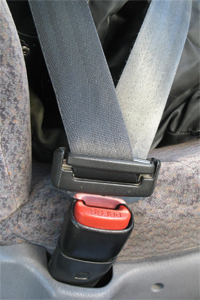 In a unanimous 8-0 ruling, the U.S. Supreme Court recently held that the Federal Motor Vehicle Safety Act does not preempt product liabililty claims brought under state common law for defective seat belts.
In a unanimous 8-0 ruling, the U.S. Supreme Court recently held that the Federal Motor Vehicle Safety Act does not preempt product liabililty claims brought under state common law for defective seat belts.
In 1993, the Federal Motor Vehicle Safety Standard (FMVSS) 208 required lap/shoulder belts in all vehicle seats except certain rear seats in vans. In the regulation, the National Highway Traffic Safety Administration (NHTSA) specified lap/shoulder belts were safer, but requiring them in all seat positions would not be cost-effective. The authorizing statute provided that compliance with the standard did not exempt manufacturers from common law liability.
Thanh Williamson died in a car accident while traveling in a Mazda mini-van that fell under this regulation. She was wearing a lap-only seat belt. Her family sued Mazda, alleging the company had a duty under state law to install the safer lap/shoulder safety belts. The case is Williamson v. Mazda Motor of Am., Inc.
A California trial court dismissed the lawsuit, finding the Federal regulation preempted the claims. An appellate court affirmed, relying on the ruling in Geier v. American Honda Motor Co. In that case, the court determined that the preemption applied in an auto defect claim involving the manufacturer’s failure to install air bags.
In Williamson, the Supreme Court distinguished between the regulations governing air bags and seat belts and said the seat belt regulation explicitly encouraged car manufacturers to install lap/shoulder belts. NHTSA supported the plaintiffs in an amicus brief, arguing that its policy objectives would have been met if the lap/shoulder belts had been installed.
Without a regulatory objective blocking installation of the lap/shoulder seat belts, the Court held that the auto manufacturer could not claim preemption based on the Federal agency’s judgment of cost-effectiveness. Such a judgment does not signify preemptive intent in most Federal safety standards, the Court said.
The Court’s ruling was a victory for consumers in the United States. Having the right to bring claims against manufacturers for defective products is not only a vital way to compensate people injured or killed by the defective products; product liability cases are also a strong force for the improvement of safety in consumer products.
Read More
Topomax Linked To Birth Defects
Pregnant women taking Topomax have an increased risk of bearing children with birth defects such as a cleft lip or palate, the Food and Drug Administration (FDA) announced today. The agency is now changing the drug’s label warning and pregnancy classification to inform women about the drug’s defects.
Topomax – known as topiramate in its generic form – is prescribed to treat epileptic seizures and prevent migraine headaches. It is also used on an off-label basis to treat weight loss, alcohol dependence and psychiatric illnesses such as bipolar disorder.
Topomax is manufactured by Ortho-McNeil-Janssen, which has headquarters in Raritan, New Jersey.
New data from the North American Antiepileptic Drug Pregnancy Registry show infants exposed to topiramate as a single therapy in the first trimester had a 1.4 percent prevalence of personal injury and oral cleft birth defects.
This is compared to .38 – .55 percent for other antiepileptic drugs. The oral cleft birth defect rate was .07 percent for infants born to mothers without epilespy and who were not treated with other antiepileptic drugs.
The FDA has re-classified Topomax from a Pregnancy Category C to Pregnancy Category D drug, indicating there is positive evidence of human fetal risk based on human data but the potential benefits from use of the drug in pregnant women may be acceptable in certain situations despite its risks.
The FDA is advising doctors to avoid prescribing the defective drug to women of childbearing age because oral clefts occur in the first trimester before many women know they are pregnant. Doctors are advised to seek alternative medications or if that’s not possible, to recommend proper use of birth control.
Read More
Two Bicycle Recalls To Watch For As Weather Warms
By Sam Segal
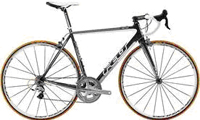 After months of high snow banks, Massachusetts residents are eagerly awaiting the arrival of spring, when they can return to outdoor activities like gardening and bicycle riding.
After months of high snow banks, Massachusetts residents are eagerly awaiting the arrival of spring, when they can return to outdoor activities like gardening and bicycle riding.
If you’re a cyclist, the U.S. Consumer Product Safety Commission announced a few bicycle recalls you may want to note before the warm weather comes.
Felt Bicycles Recall
Felt Bicycles has recalled their model 2011 F3, F4, F5, and F75 bikes due to a problem with the bicycle fork (the part of the frame that connects the handle bars to the front wheel and allows for steering and balance). The forks on these defective bikes have a danger of breaking, causing the rider to possibly lose control, have a bike accident and suffer personal injuries.
Owners of these Felt bicycles are instructed to stop using the defective bikes immediately and contact their local dealer (866-433-5887) to receive a free inspection and repair.
Novara Fusion Bicycle Recall
REI has recalled their Novara Fusion bicycles with serial numbers U95Y07321, U96Y28393, and sequentially from U96Y28876 – U96Y29128 due to a problem with the bicycle fork. The forks on these defective bikes have a danger of separating from the alloy steerer tube, causing the rider to possibly lose control, have a bike accident and suffer personal injuries.
Owners of these REI bicycles are instructed to stop using the defective bikes immediately and contact their local dealer (800-426-4840) to arrange for a replacement fork to be installed free of charge.
Read More
Defective Space Heaters Recalled
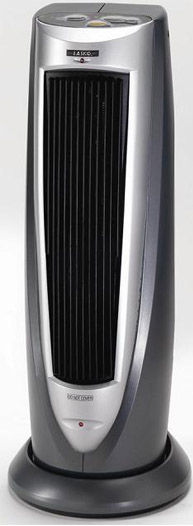 As consumers look to space heaters to stave off the winter chill, a large manufacturer has recalled over 100,000 defective units from the shelves.
As consumers look to space heaters to stave off the winter chill, a large manufacturer has recalled over 100,000 defective units from the shelves.
Lasko Products, Inc. of West Chester, Pennsylvania recalled 107,500 defective space heaters this week in cooperation with the U.S. Consumer Product Safety Commission. An electrical connection in the base of the unit can overheat, causing it to melt and expose the electrical connection.
Lasko received 36 reports of electrical connection overheating with no reports of injury. There were 18 reports of minor burn damage to floors or carpets.
Two defective space heater models were involved in the product recall. The Lasko Model 5540 was sold at Sam’s Club and other retailers from September 2002 through early 2004. The Air Kind Model 8540 was sold primarily through W.W. Granger Inc. from late 2002 to 2004.
Consumers are advised to stop using the defective space heaters immediately and contact Lasko for a free replacement.
If you are using another space heater, please visit the website of the Boston product liability lawyers at Breakstone, White & Gluck. Click here for our home heating safety tips.
Read More
What Accutane Users Need to Know
Accutane is an acne medication that was once widely used, but withdrawn from the market in June 2009. The manufacturer, Hoffman-LaRoche, discontinued the drug as it faced Accutane lawsuits related to the drug’s powerful side effects.
Accutane is also known as isotretinoin. Approved for use in 1982, the medicine was originally manufactured to treat certain types of cancer. Later marketed as an acne medication, it proved effective at treating severe nodular acne, a chronic condition characterized by large, red, swollen lumps on the skin. Left untreated, severe nodular acne can cause permanent scarring.
Between 1982 and 2009, Accutane was used by more than 13 million patients, including those in Massachusetts. Additionally, many other individuals used generic equivalents, such as Amnesteem, Claravis and Sotret. The generic equivalents are still being prescribed.
The drug has long faced government scrutiny for its side effects, including birth defects, inflammatory bowel disease, ulcerative colitis, Crohn’s disease, liver damage, suicidal thoughts and depression. In many cases, patients have required extensive medical treatment and surgery to correct Accutane injuries.
The FDA has issued several warnings about Accutane over the years. In 2005, it warned users to watch out for symptoms of depression, suicidal thoughts and mood disturbance. The government agency has worked with Hoffman-LaRoche for many years on its iPledge program to reduce the risk of birth defects among female users. In 2007, the FDA warned consumers not to purchase Accutane or its generic equivalents over the Internet without consulting a doctor.
If you have taken Accutane, it is important to be informed of your rights. If you have taken the defective drug and suffered personal injuries as a result, you may be able to file a claim against the manufacturer.
Breakstone, White & Gluck of Boston, Massachusetts is skilled at handling product liability cases involving defective drugs such as Accutane.
Click to learn more about our Massachusetts Accutane lawyers. Or if you have a case, contact us today at 617.723.7676 or use our form.
Read More


